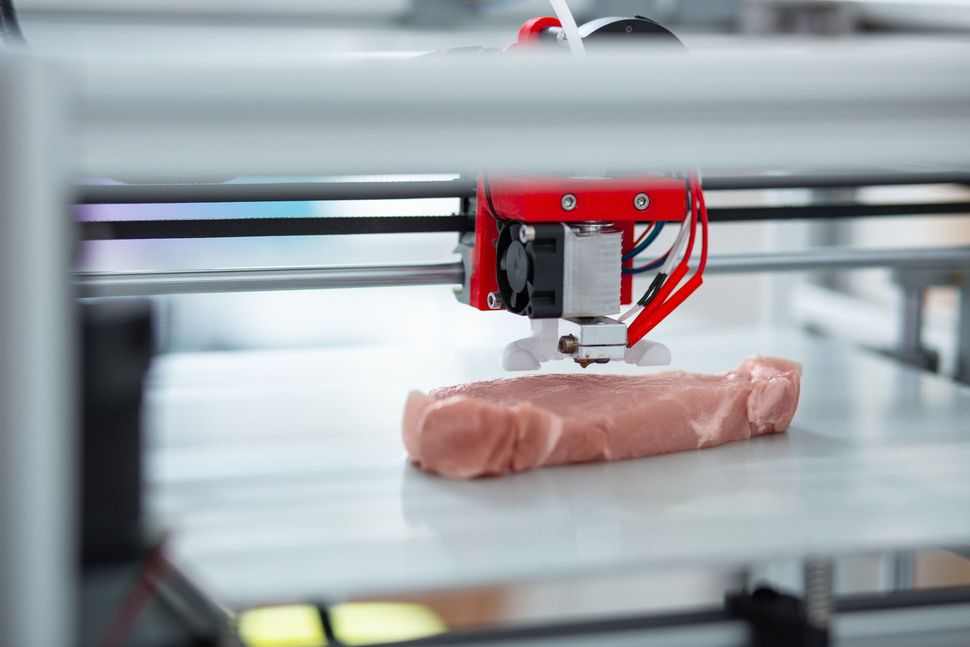A rare achievement: Israeli company unveils 3D printed rib-eye

Close up of 3D printer recreating piece of meat Image by iStock
Aleph Farms, a startup based out of the Israeli city of Rehovot, has unveiled the world’s first 3D printed rib-eye steak.
Today, we’re excited to share our proof-of-concept of the world’s first cultivated ribeye steak. Made possible by our incredible team using 3D bioprinting technology, we now have the ability to cultivate any type of steak of any dimension. https://t.co/5WMfKVcXhq
— Aleph Farms (@AlephFarms) February 9, 2021
Though alternative meats, such as the Impossible and Beyond burgers, have become common in recent years, Aleph’s creation isn’t made of plant matter, but rather, real bovine tissue cells grown in a lab.
Thus, it doesn’t just have the flavor of meat, but its texture as well.
Tuesday’s unveiling of the rare — pun intended — new product is not the first success the company has had with lab grown meat. Previously Aleph successfully grew thin slices of lean minute steak-like meat, and was even able to do so in outer space.
However, unlike their past creations, the most recent experiment successfully resulted in a thick slab of beef, complete with intramuscular fat.
“Unlike 3D printing technology, our 3D bioprinting technology is the printing of actual living cells that are then incubated to grow, differentiate, and interact, in order to acquire the texture and qualities of a real steak,” the group explained in a blog post. “It incorporates muscle and fat similar to it’s slaughtered counterpart and boasts the same organoleptic attributes of a delicious tender, juicy rib-eye steak you’d buy from the butcher.”
It’s a major breakthrough, says the group’s co-founder, Shulamit Levenberg, a professor at the Technion – Israel institute of Technology.
“With the realization of this milestone, we have broken the barriers to introducing new levels of variety into the cultivated meat cuts we can now produce,” Levenberg said. “As we look into the future of 3D bioprinting, the opportunities are endless.”
The group has already partnered with Mitsubishi to start selling the meat in Japan, Bloomberg reported. The Food and Drug Administration has yet to approve any lab grown meats in the United States.
However, Aleph Farms CEO Didier Toubia says that it will take at least five years before the product can be cultivated at a scale at which it will achieve cost parity with slaughtered meat, according to the Washington Post.
The idea of slaughter-free meat isn’t just an exciting prospect to vegetarians and vegans. If it takes off, it could have a significant impact on the global beef industry, which accounts for some 25% of the world’s land use, between 7-18% of human-influenced methane emissions and is a leading cause of soil degradation around the world, according to the World Wildlife Fund.
In December, Israeli Prime Minister Benjamin Netanyahu became the first head of state to consume lab grown meat when he visited Aleph Farms.
“It’s delicious and guilt-free,” Netanyahu said. “I can’t taste the difference.”














